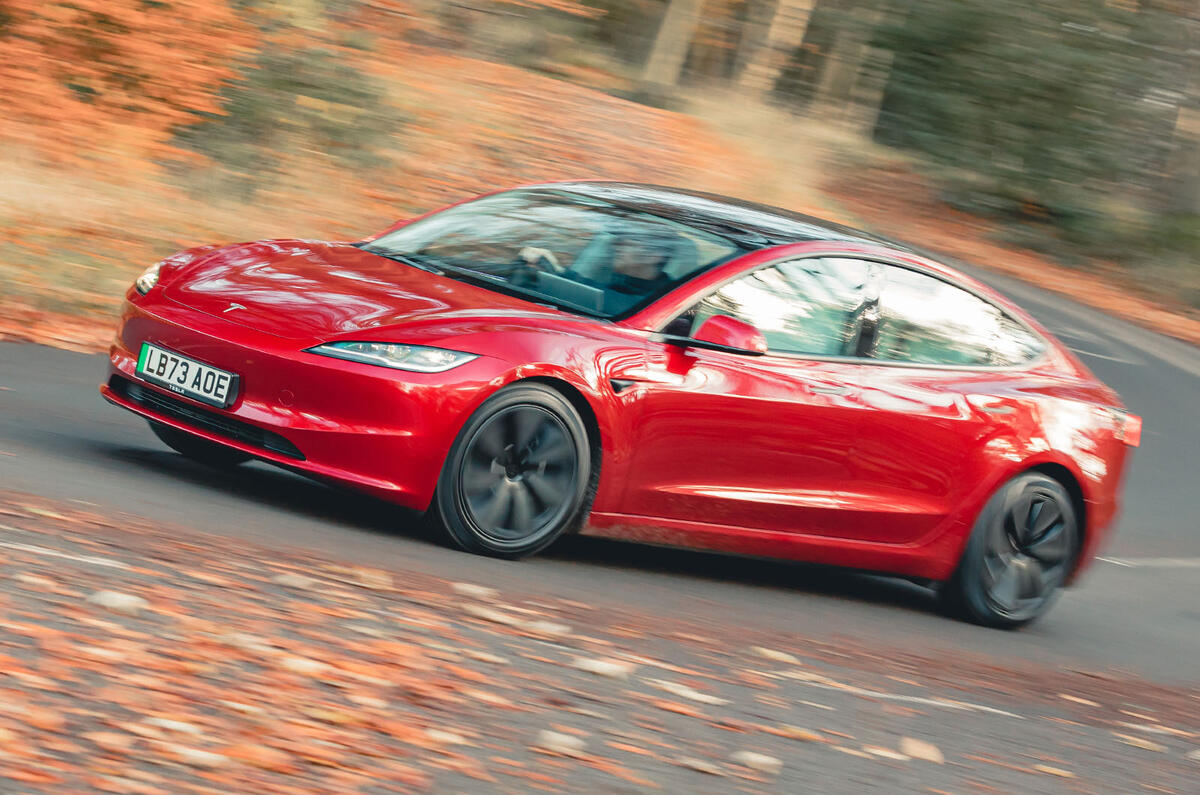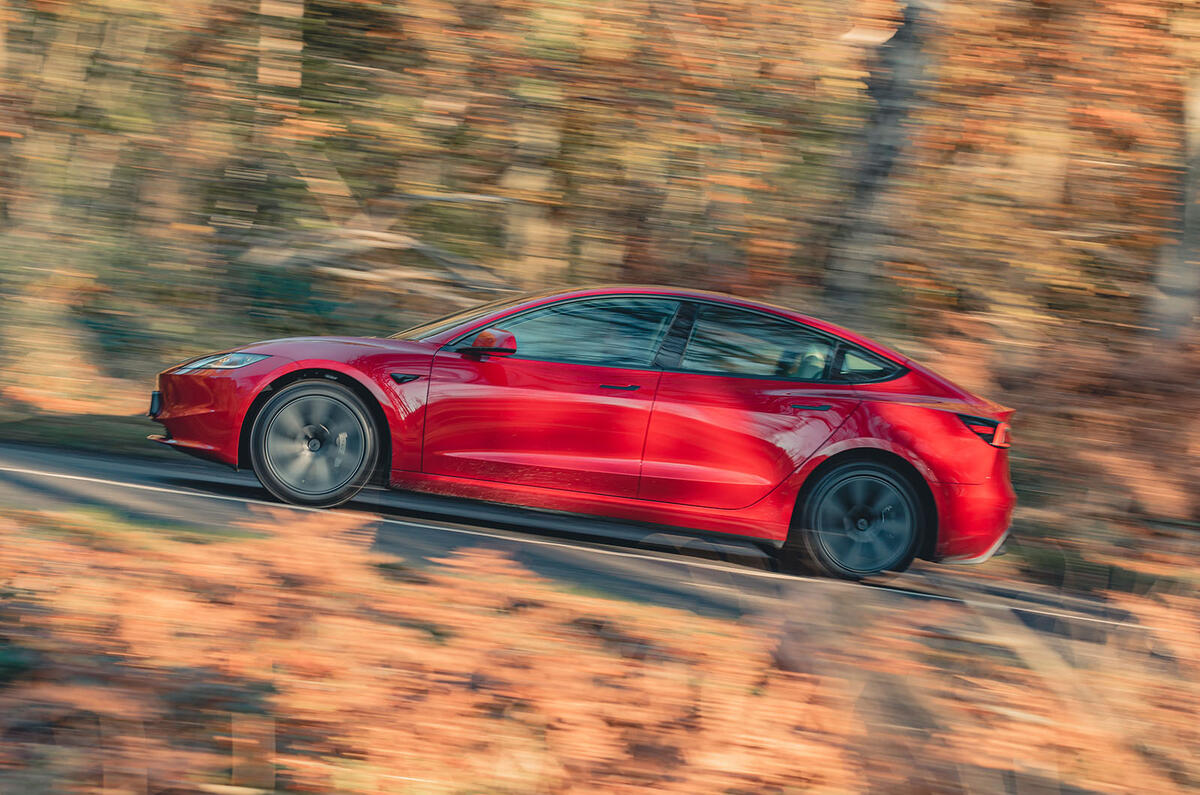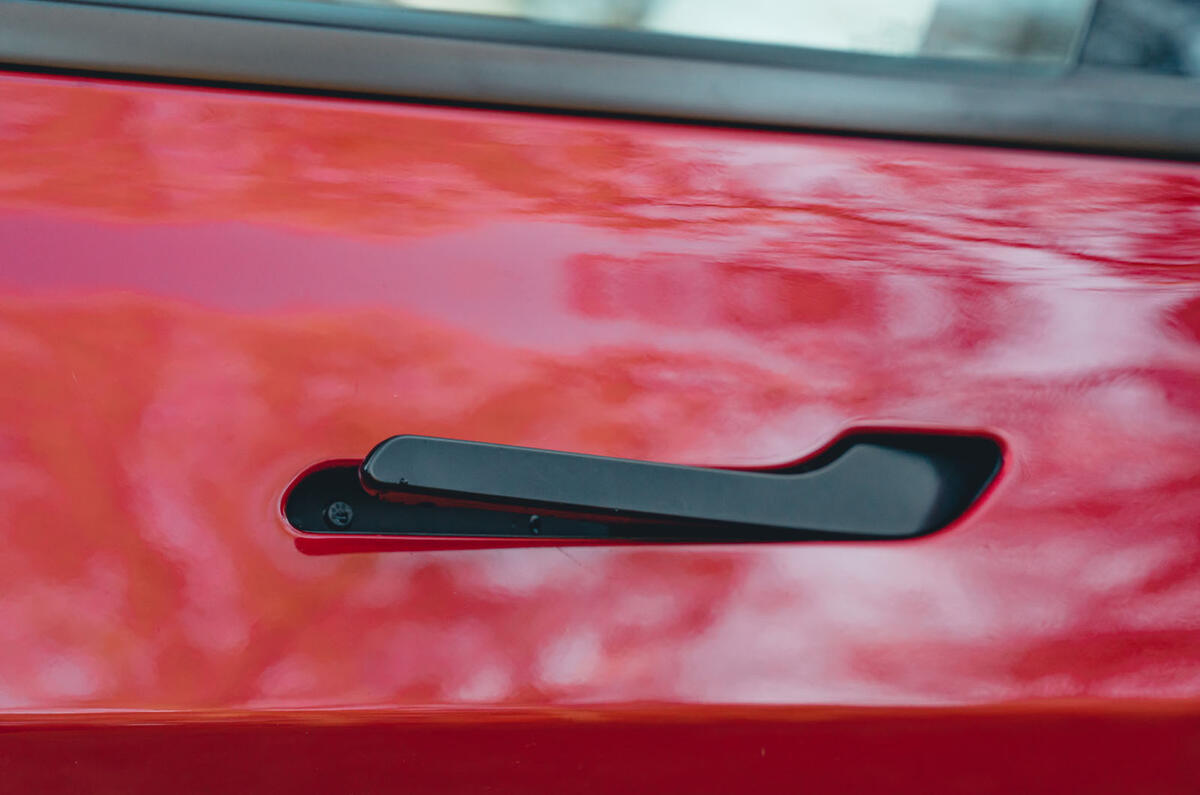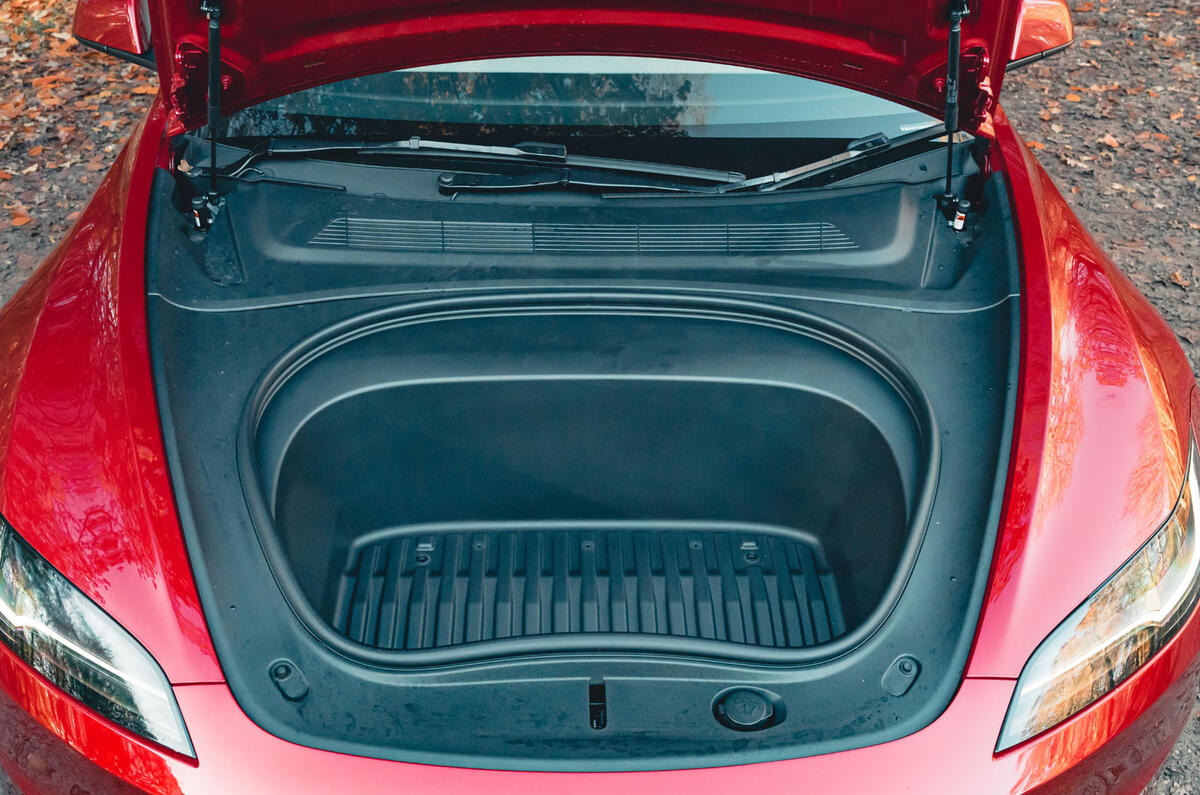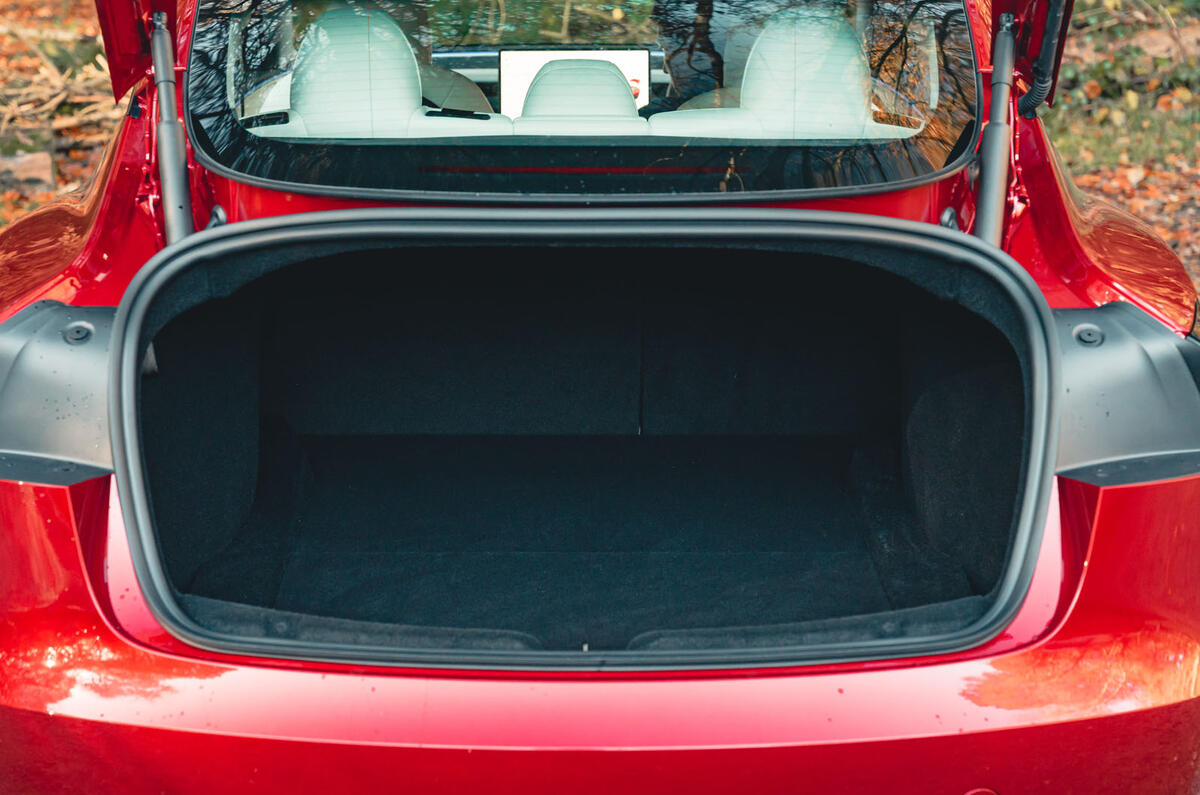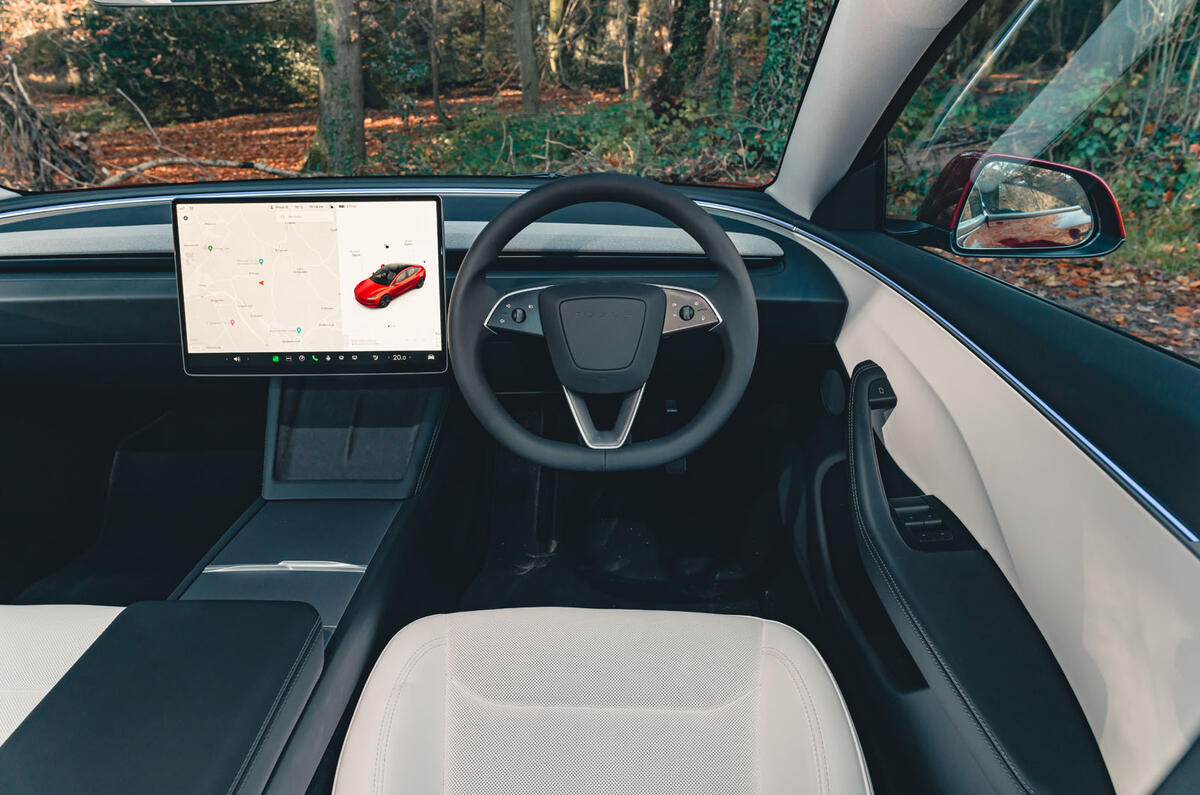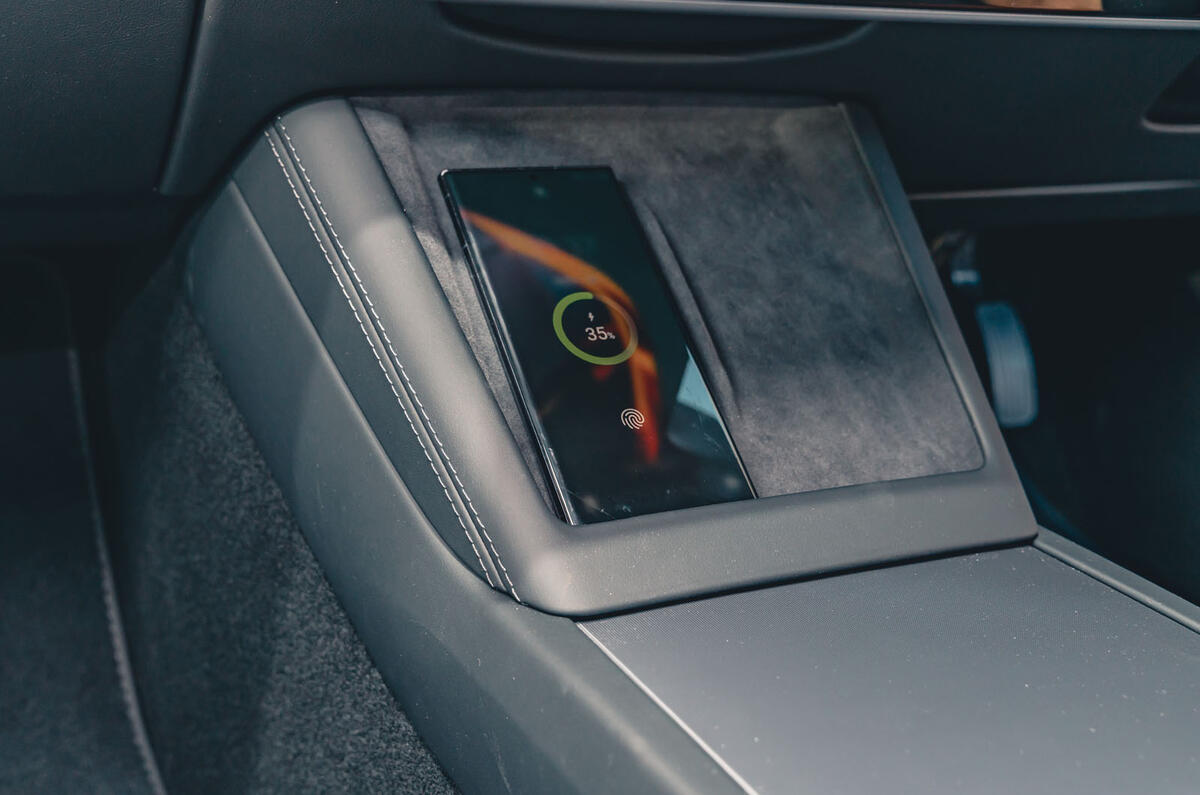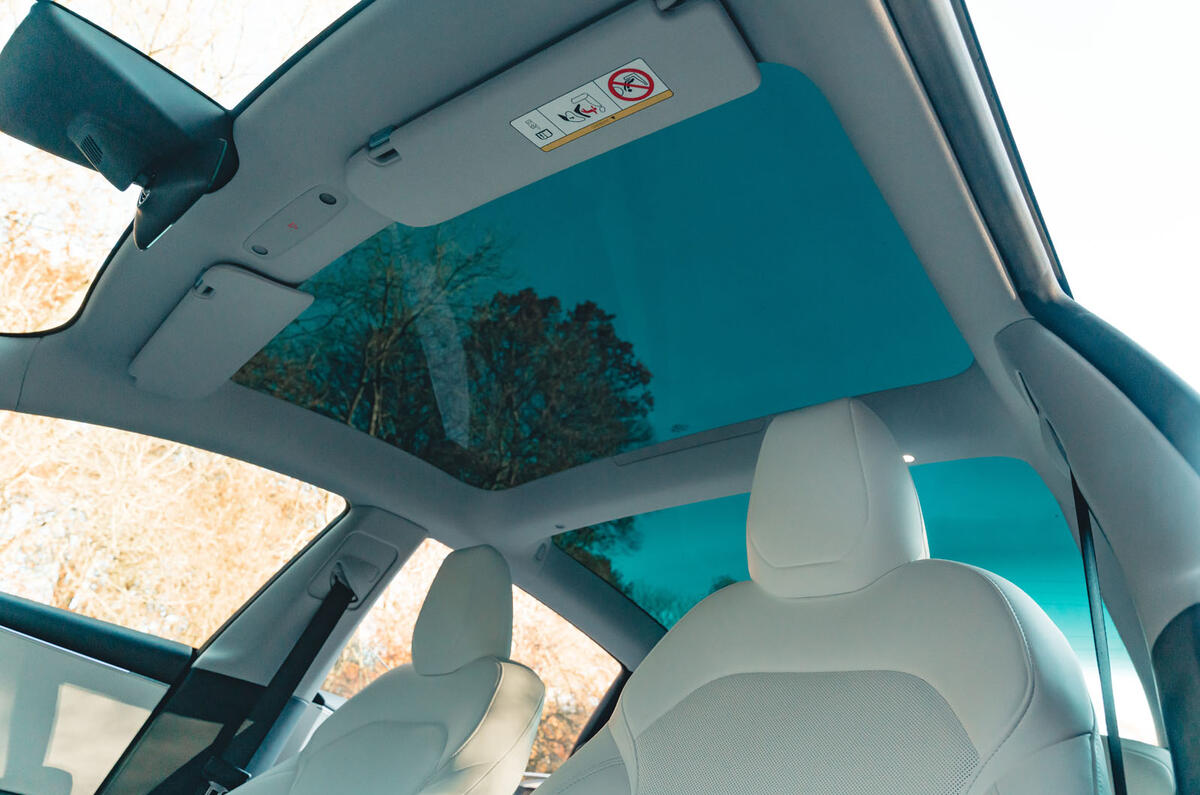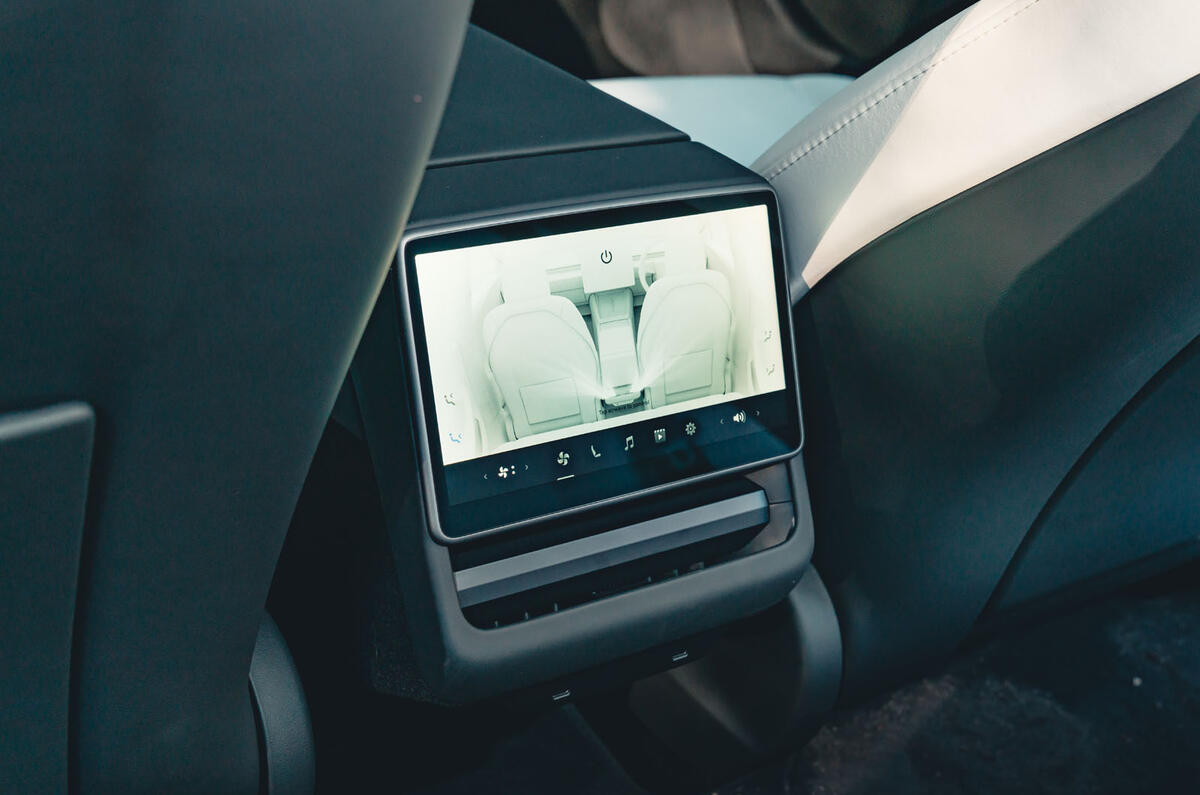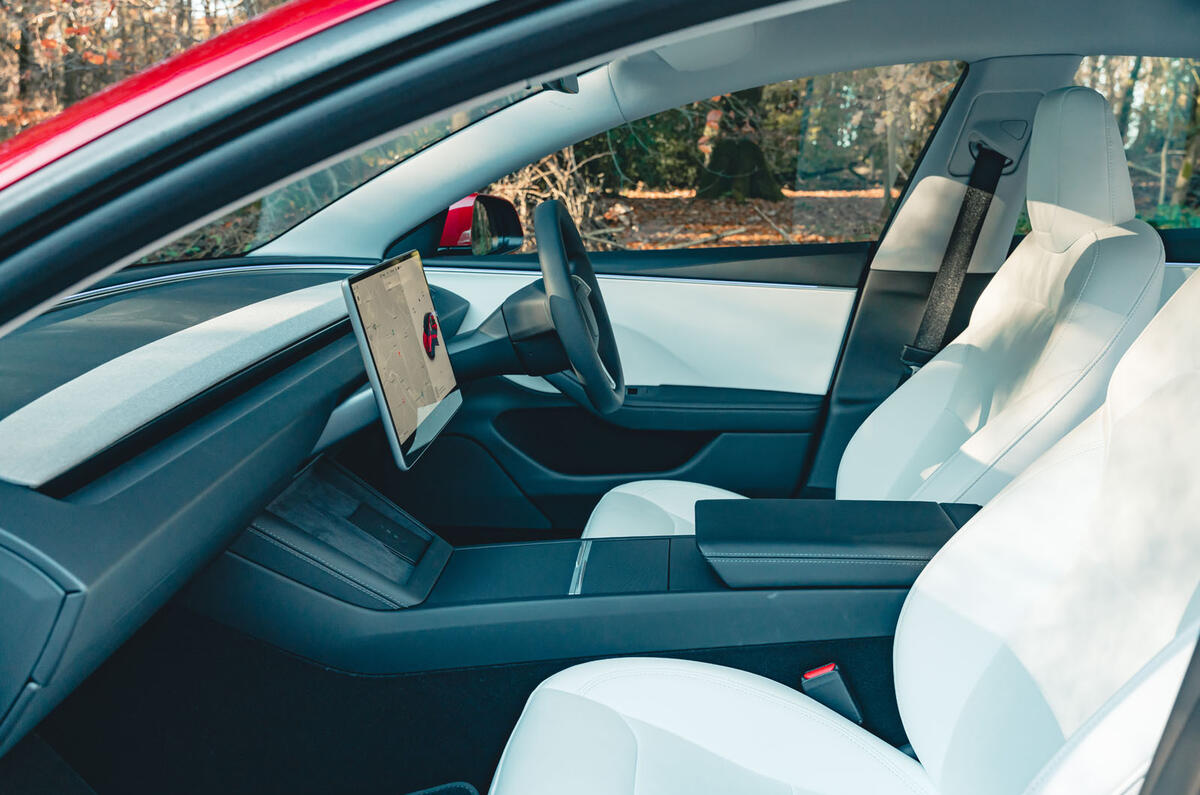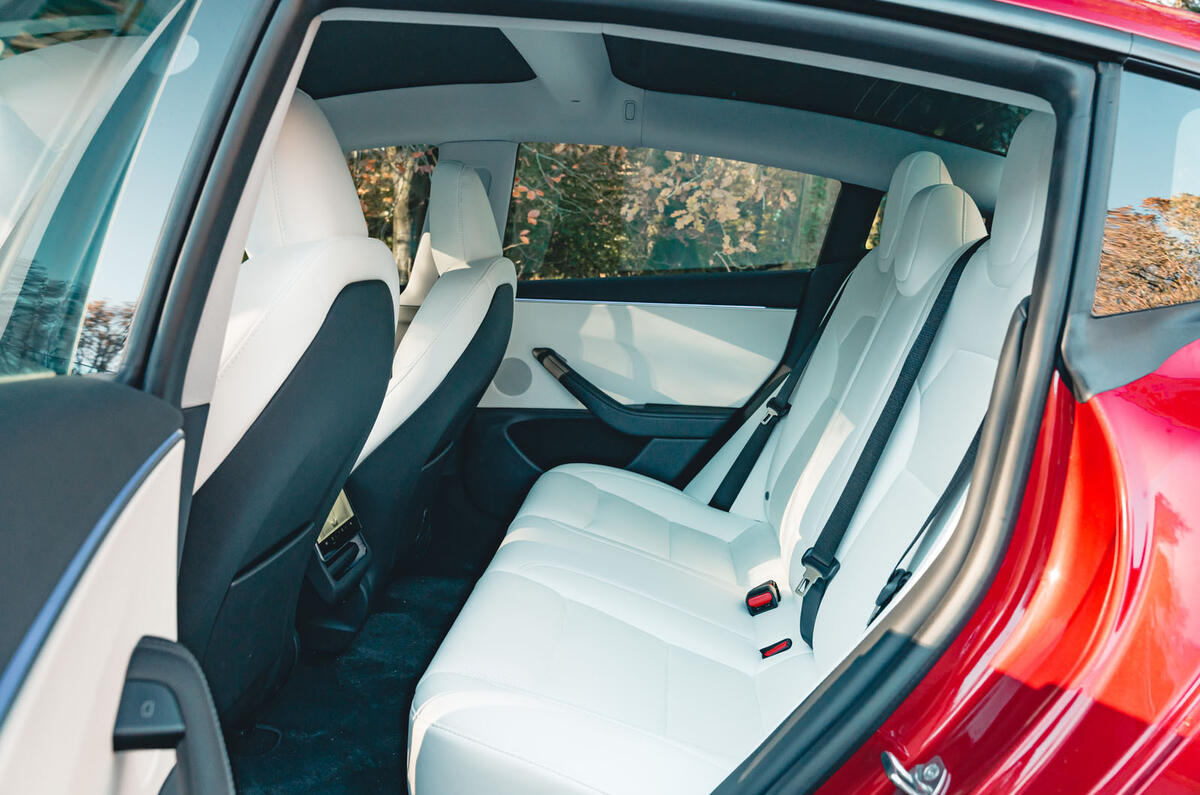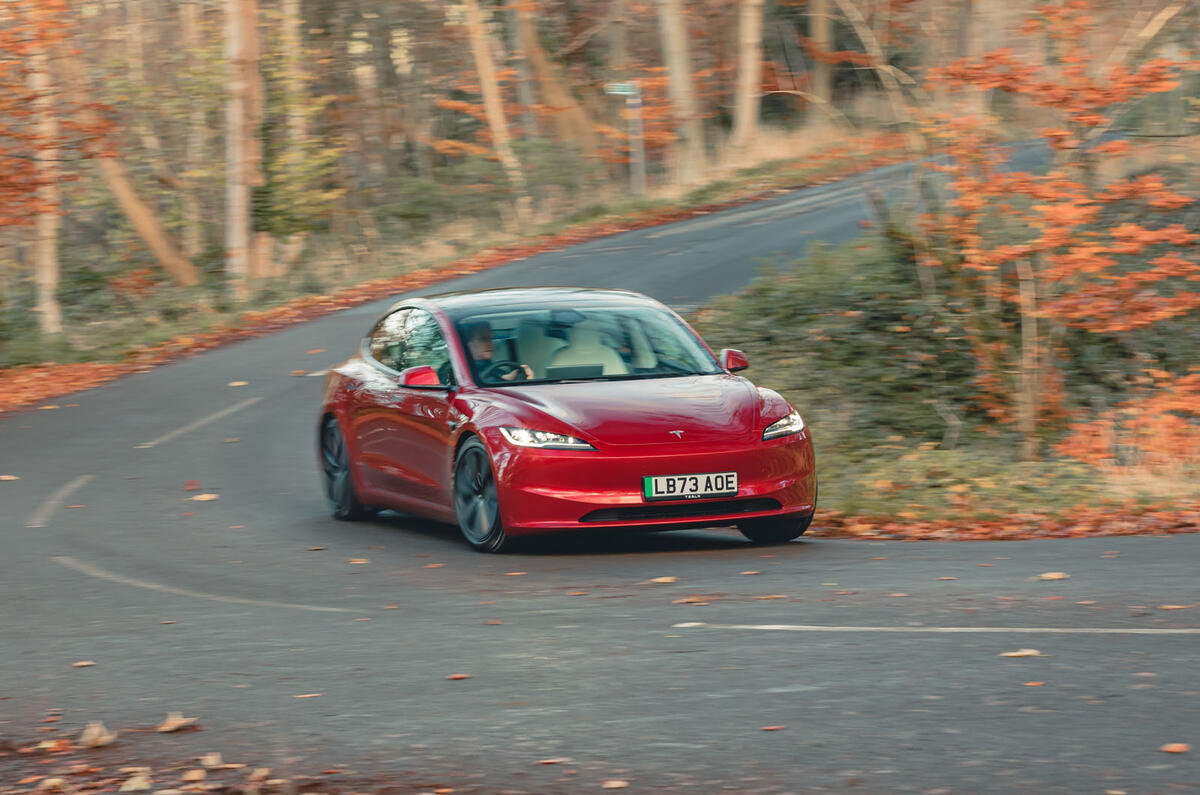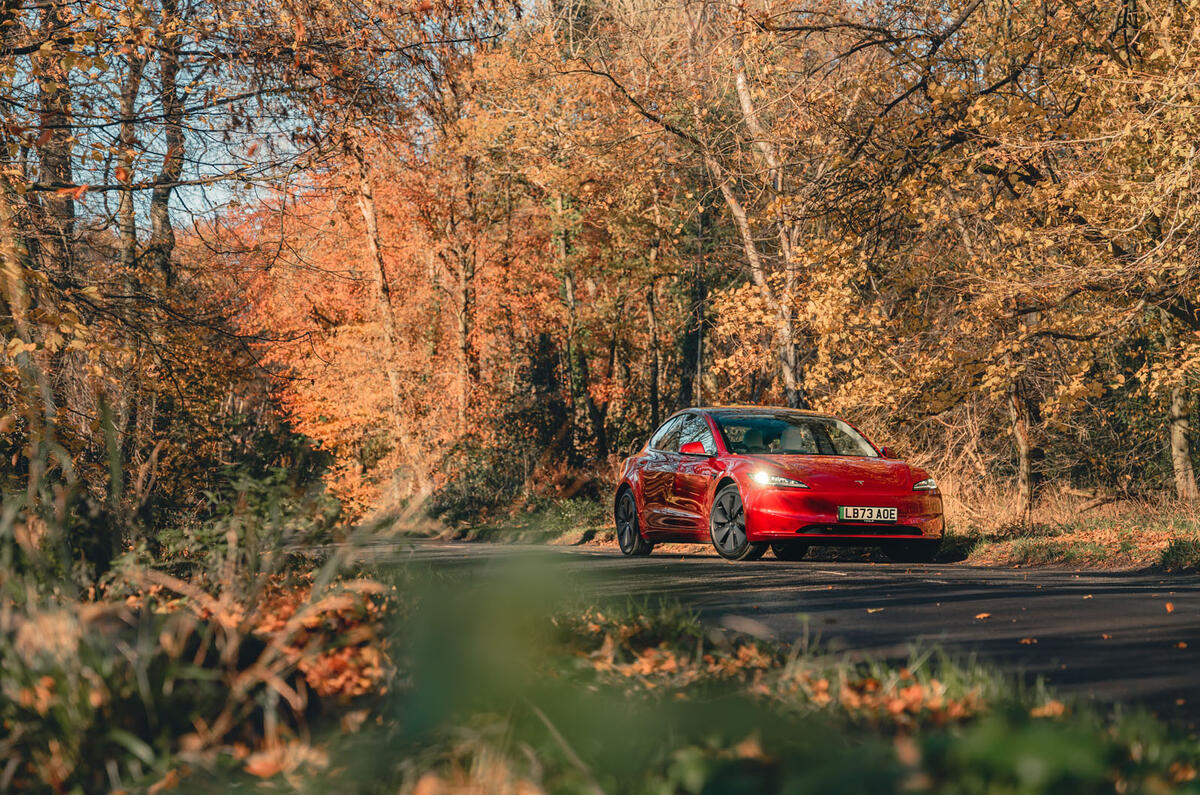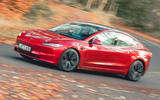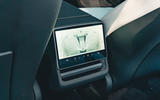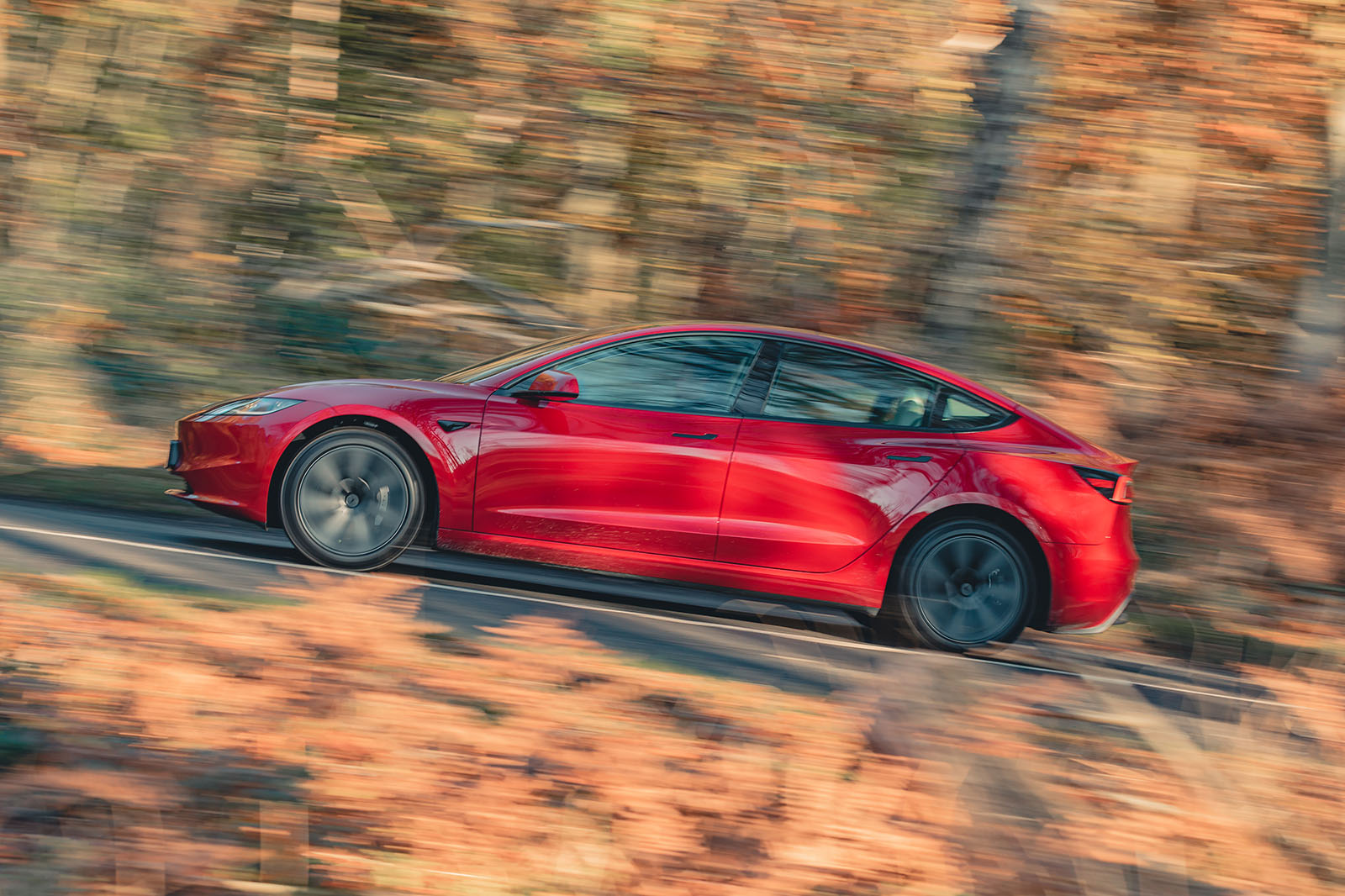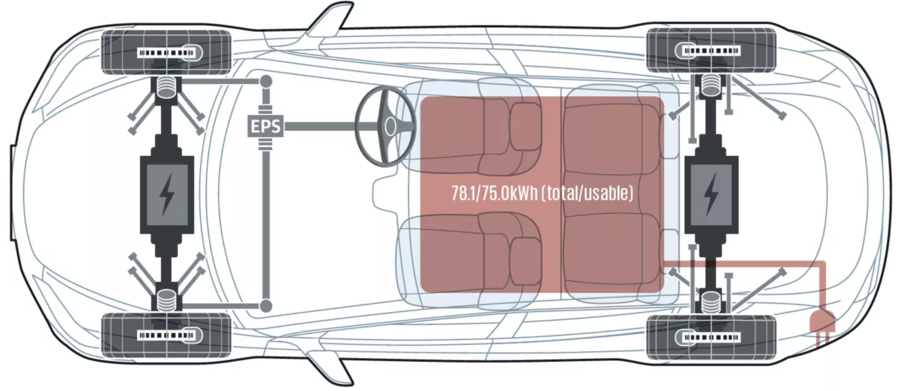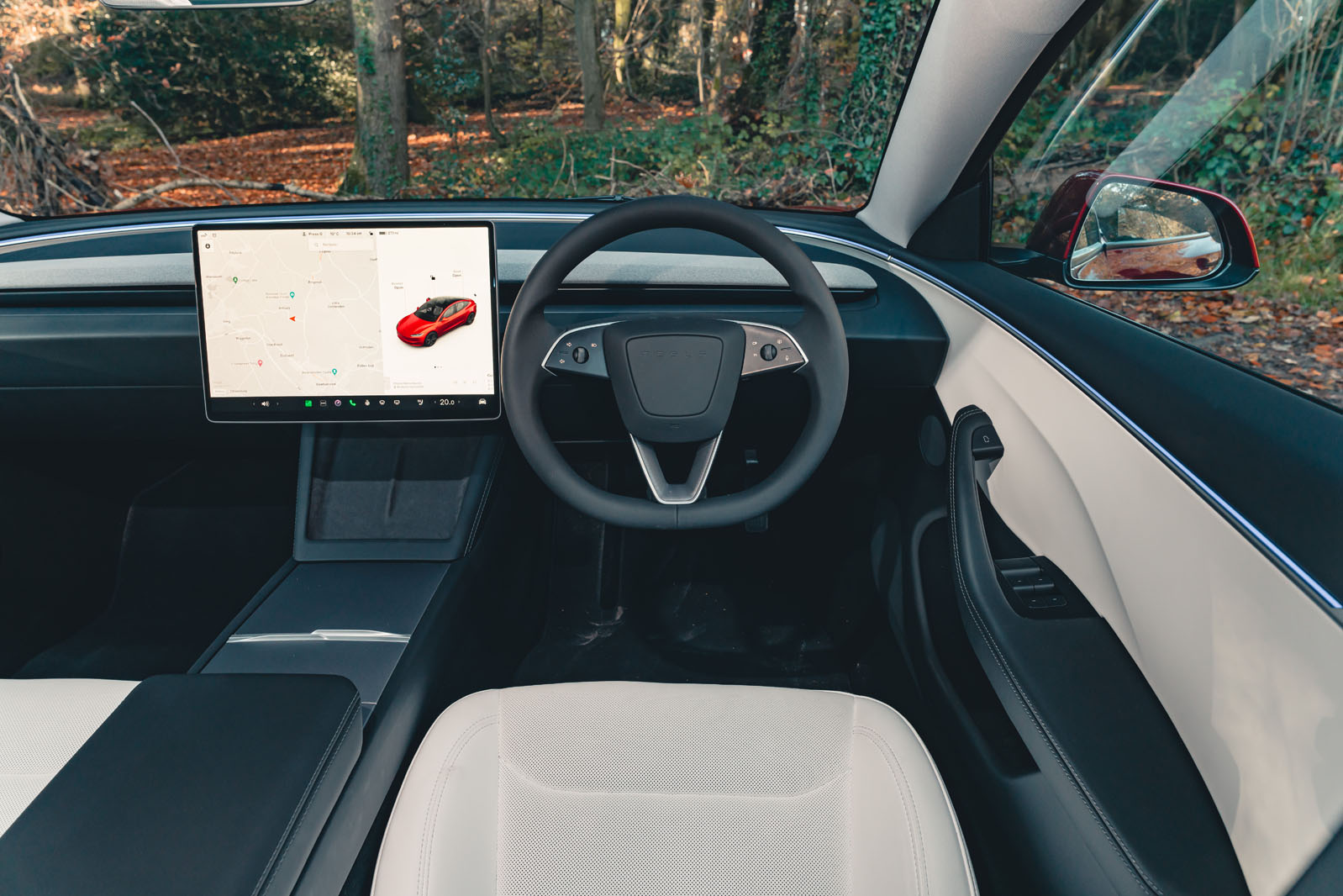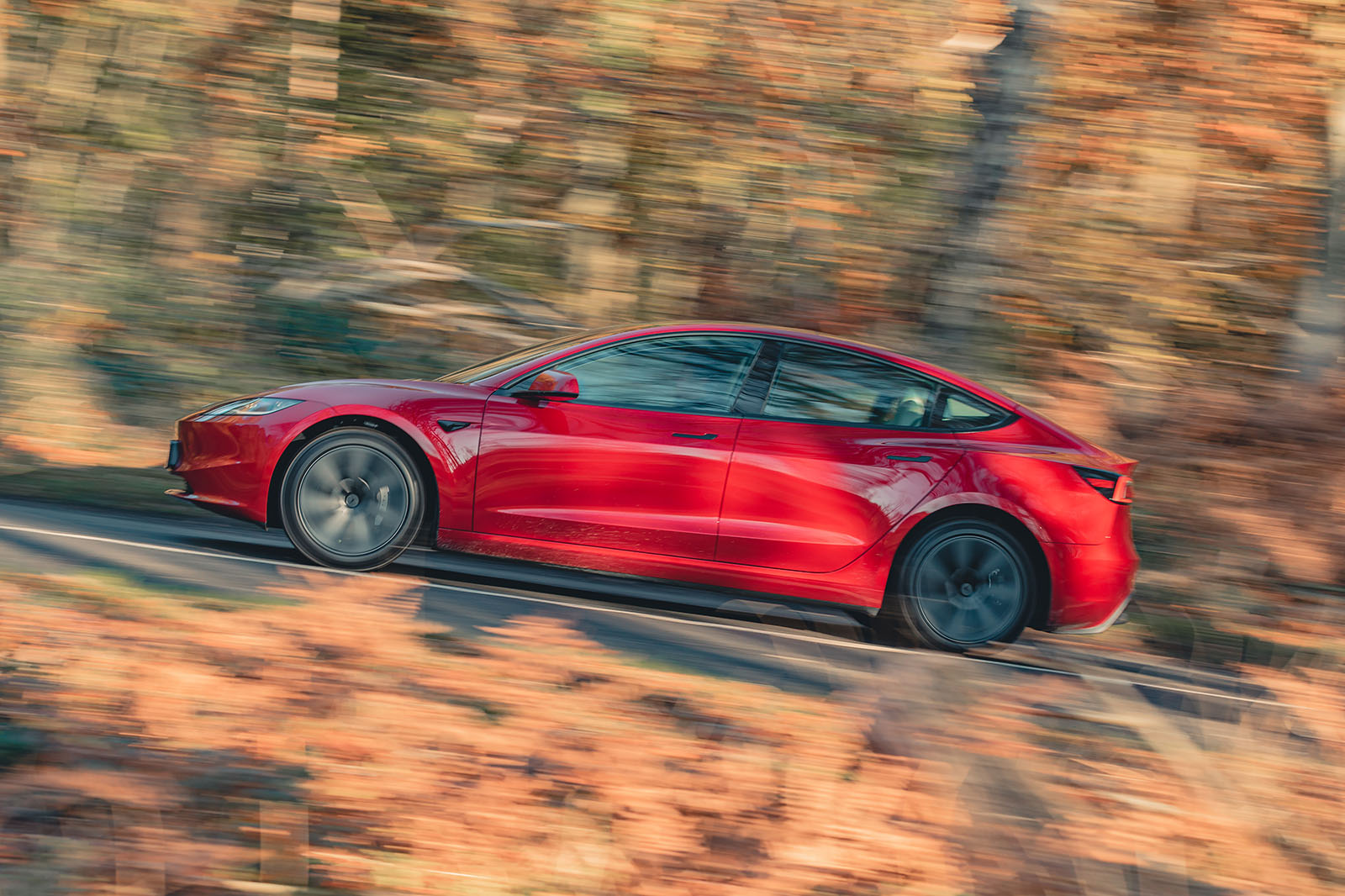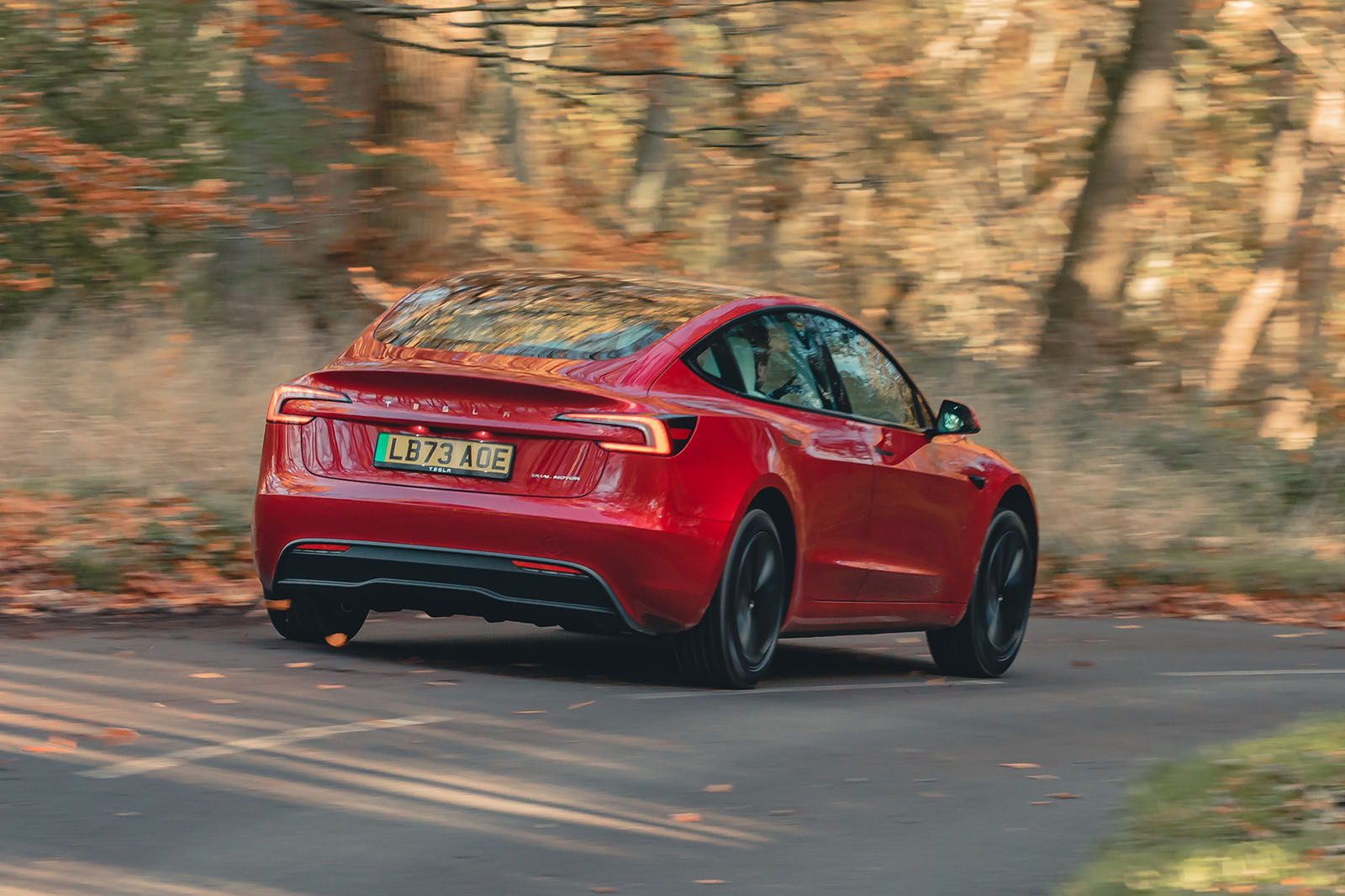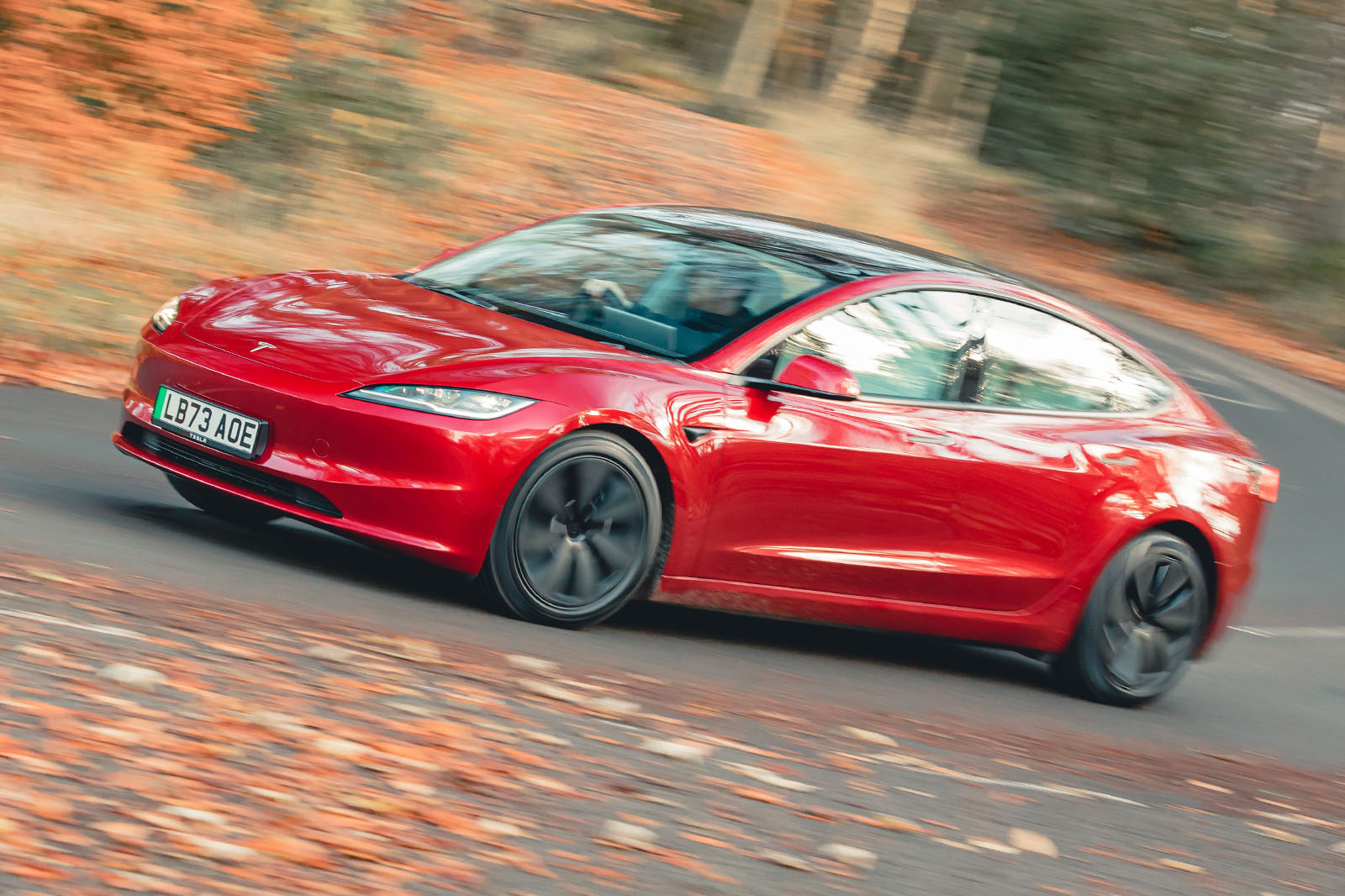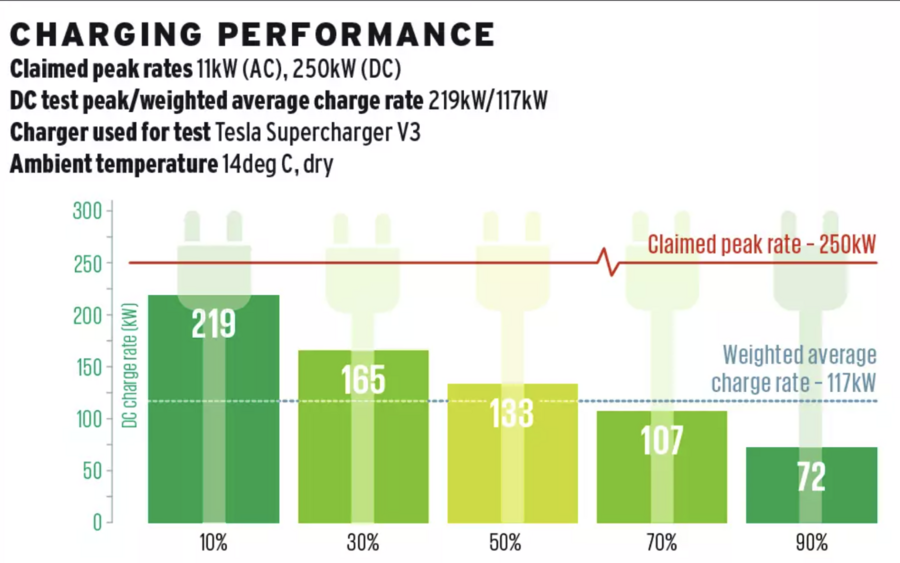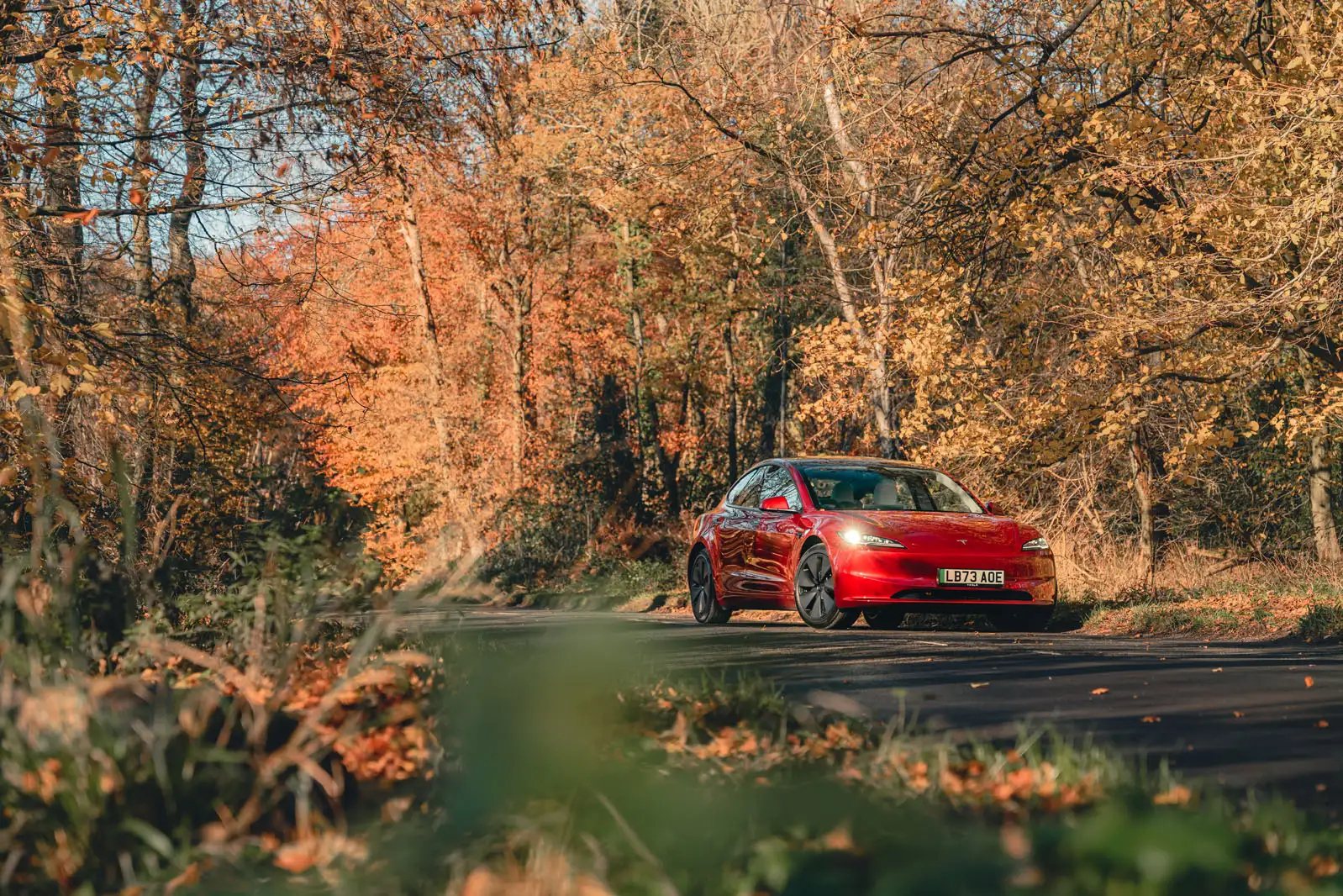The Model’s 3 cabin was always a love-or-hate proposition and this hasn’t changed with the facelift.
This is an extraordinarily pared-back environment, and so extreme are the lengths to which Tesla’s designers have gone to remove as much switchgear as possible that you can count the number of physical controls on one hand.
For this latest Model 3, the column stalks have been binned, with the indicators operated from a touchpad on one of the steering wheel spokes and the wipers activated via the infotainment screen.
No doubt these changes saved a few pennies in the production process, but for the driver they are less welcome. Indicating, in fairness, comes more naturally with familiarity, as it does in cars with similar set-ups, such as the Ferrari 296 GTB. However, while this Tesla has automatic wipers, they weren’t accurate enough in responding to various degrees of rain for us not to have to dive into the touchscreen to set the speed manually.
In our eyes, this is a reasonably serious usability flaw and one Tesla may need to reconsider in the future.
More unequivocally successful is perceived quality. This interior has been upgraded in terms of materials and finish, and overall the updates have worked: the Tesla finally has the premium chops to rival its upmarket combatants. You can now personalise the top panel of the dashboard with inserts in a different colour or material, such as a grey textured fabric.
The cupholders have gained a sliding lid, while an almost endlessly customisable strip of ambient lighting runs along the upper section of the doors and continues along the top of the dashboard. Crucially, it all feels more solidly screwed together, with almost none of the creaks that could afflict the old Model 3.
Elsewhere, oddment storage is plentiful and a combined luggage space of 682 litres (split between a small compartment at the front, the ‘frunk’, and a traditional rear boot) is certainly usable enough and more than the 480 litres you get from an ICE BMW 3 Series.
Two adults will fit in the second row in reasonable comfort too and the panoramic roof and huge glasshouse make this the least claustrophobic-feeling car in the class. Mind you, the new Volkswagen ID 7 offers more outright space.
Multimedia system
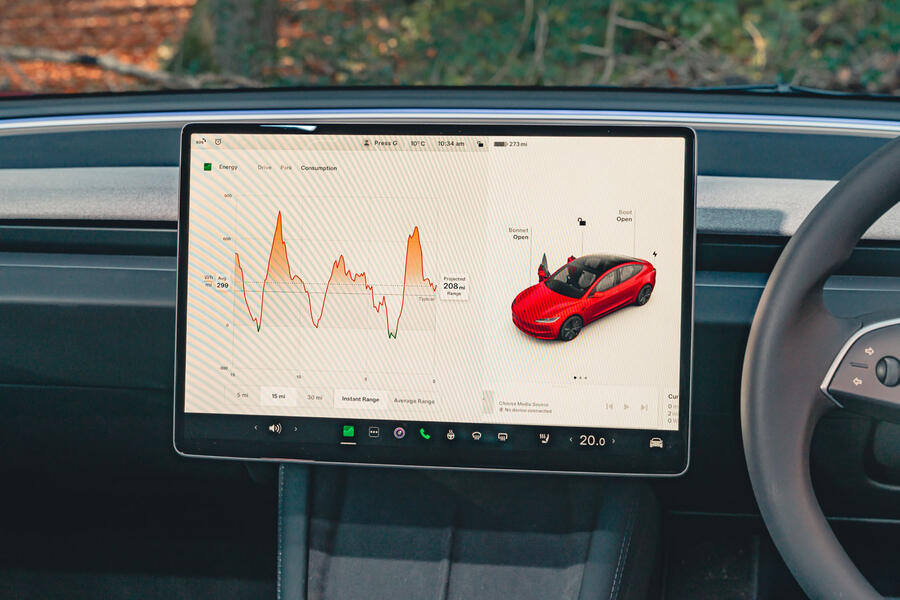
As you’d expect from a Tesla, its infotainment system feels as though it has been lifted straight out of Silicon Valley. The 15.4in screen may seem almost comically large, but credit where it’s due: it’s difficult not to be impressed by the quality of its graphics and the slick manner in which it operates.
Unlike with rival systems, you rarely need to tap twice to access a function or menu, while on the whole the layout is logical and easy to follow, which is a good thing when you consider it’s used to operate everything from the windscreen wipers to the heating, ventilation and air conditioning. Even so, a few physical control for the most frequently used functions wouldn't go amiss.
At least it isn’t short on toys, not in the literal sense at least. In addition to features such as sat-nav, Bluetooth and DAB radio – the sort of things you’d expect from a circa-£40,000 compact saloon – there are some more, let’s say surprising, features. Such as a digital whoopee cushion and a full suite of arcade-style games. The genuinely useful Apple CarPlay and Android Auto remain absent, however.
For the latest version of the Model 3, rear-seat passengers can get in on the infotainment action, thanks to the addition of an 8.0in touchscreen mounted between the front seats. From here occupants can adjust the air-con as well as access various multimedia functions. Moreover, there are also a pair of 65W USB-C ports that allow rapid charging of devices from smartphones to laptops.


